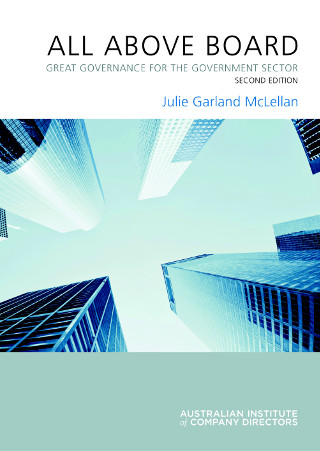Dear reader,
Welcome to the May 2016 edition of The Director’s Dilemma.
Our case study this month looks at some government boards with a problem and asks how to proceed given the shared ownership (if, indeed, that has an impact) with the response to that problem.
I hope you will enjoy this dilemma and the three suggested responses.
To read this email in your browser, go to www.mclellan.com.au/newsletter.html and click on 'read the latest issue'.
Drisana is Chairman of a government owned enterprise. Her company runs a sports facility on land purchased thirty years ago from the local water board (using a government grant).
Three years ago her board applied for another grant to develop additional indoor facilities and replace the existing installations. The design was already partially complete and the board decided to fast track the project, starting work on the excavation for the underground car park whilst finishing the detailed design of the sports facility. The existing facility would operate during construction and then, when the new facility was opened, be demolished to create outdoor recreational space.
Everyone was very excited about the project as the existing facility was old-fashioned, difficult to maintain and failing to provide the services that the local community demanded. Unfortunately, soon after starting the excavation, the contractor uncovered a repository of contaminated soil. Building stopped.
The local environmental and health authorities ordered use of the existing facility to cease, fearing that volatile carcinogenic compounds might be escaping from the now exposed contaminated soil. A ‘clean-up notice’ is expected. Cleaning and remediation are likely to cost millions that Drisana’s company does not have.
The board sought and received legal advice which recommended that they should sue the local water company. Drisana is not sure that this is the best way forward; they both belong to the same government shareholder and costly legal action will only add to the government’s bill. She doesn’t want to sue a ‘sister’ company that is owned by the same government that owns her company. But she does want proper recompense for the damages and a viable way to provide service to the community again, preferably soon.
What should Drisana do?




